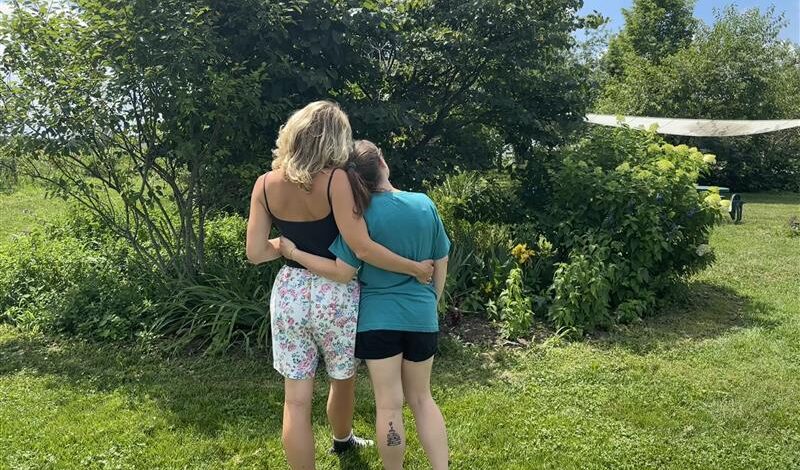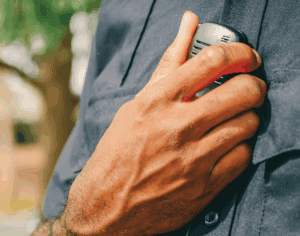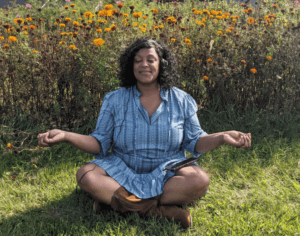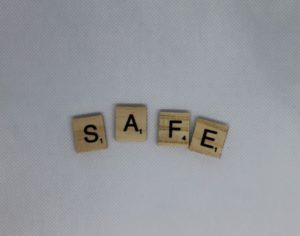Supporting Your Loved Ones
When someone you love is being abused, the dynamics can be very complicated. We sat down with our executive director, Darlene, to share advice on common questions from families of survivors on our hotline.
How should I act around an abuser?
I believe it’s important to be cordial. They’re still human beings. That doesn’t mean you have to condone their behavior or agree with it. It’s important for the survivor, because when you’re not cordial, the abuser may use that as a way to further manipulate and control their partners.
It’s hard for family and friends. You don’t really know what to do because you don’t want to lose the person you love.
Families also need to remember they don’t cause somebody to be abusive. The abuser is already using their tactics day in and day out on the person that you love and care about. You can’t create those dynamics, but the abuser will use those dynamics in order to excuse or justify their abuse because they’re really good at playing the victim.
I know someone has a history of abuse or that my family member is being abused, but most of the extended family doesn’t. Is this something they need to know if they’ll be around for family events?
I think you have to weigh out the pros and cons. Ask yourself how does it benefit everybody to know? Also, sometimes it can be helpful to pull in influential folks. For example, I might not listen to my mother, but let my grandmother tell me something and it might hold more weight.
But if something has happened, we’re worried for our loved one’s well-being, or they have fled for their safety, at that point in time, it’s important to keep family members informed.
Sometimes family members might be upset they didn’t know before, and you can remind them that you were honoring your loved one’s request and trying to keep the peace.
What are some things we can say to let our loved one know we’re here for them?
You can always say, “I know what’s going on. I’m worried for you. I’m worried for your safety. We are always here, and we love you. Don’t ever think you have gone so far that you can’t come out.”
That’s really important for a survivor to hear. A lot of the time, survivors have defended and stood beside the abuser, and now to say that everybody else was right can be really hard. So, they’ll hold on tighter in many ways.
So it’s important for family members to avoid saying, “I told you so.” Instead, do your best to communicate that you are there to support them.
My family member is dating someone with an abusive past. Can they change?
Can people change? I have to believe on some level that yes, people can change. Do abusers change? Not much.
I think abusers adapt based on the situation they’re in, what they can get by with, and how far they can push. It depends on the survivor, their background, their history, their strengths, and their weaknesses. It can look a little different from one victim to another.
What most people don’t understand is just because you’re not seeing the abuse now doesn’t mean it’s not going to happen.
Abusers don’t start to show who they are until they’re comfortable knowing they have you hooked enough. That could be living together, marriage, or your first child together. The abuser is grooming, waiting, and learning about their situation. Then they’re going to adapt to that as necessary.
It’s very rare you see an abuser accept responsibility for their behavior and they have a tendency to blame everybody else for why it happened.
What if they’re in therapy? Can that help them change?
When an abuser goes to therapy – whether individual or couples therapy – they’re often treated for anger issues if the therapist doesn’t understand intimate partner abuse, histories of domestic violence, power and control, and other dynamics.
Sometimes while in therapy, abusers learn different behavioral options versus physical violence. That is not addressing the realities of intimate partner abuse, which is power-based violence.
Domestic violence is not about anger. People who abuse their intimate partners are often able to control their anger with other family members, at work, and with friends.
I’m not going to say somebody can’t make a decision to be different. They can, but not without some serious intervention and ownership over their behavior, with some real years showing they can do things differently. In my career, I find that a rare occasion for those that do harm.
How does an abuser manipulate those around the survivor?
If an abuser can manipulate the loyalty or care of the family, then they’ll do that. And if that doesn’t work, they’ll turn around and undo it. But if it works, that’s the best-case scenario for the abuser.
Survivors might think, “If everybody else likes them, then I must be crazy. Everybody else likes him, he’s a good guy. They’re all saying he’s trying, but yet these things are happening to me. So maybe it’s me, maybe I should be better.”
Family and friends need to stay focused on behavior, not words.
Abusers can say all the right things like, “Oh, I just love them. I’m trying my best. I’m not perfect, but she’s not perfect either.” They know what to say, how to minimize, how to charm people, how to twist the story around just enough to make people have some doubts.
And people are imperfect. Survivors are imperfect so they will not always say the right things or do the right things or react to whatever people perceive is the right way of what they’re experiencing.
Is there anything else you would like to share about complicated family dynamics?
I’d like to validate that it’s a difficult balancing act because it sometimes calls into question your own integrity.
As family, sometimes we have to say to ourselves, ‘I can play this game, because I love you and I’m going to be here for you no matter what. It’s going to get difficult. This person might try to tear you from me, or try to interfere in our relationship, but I’m not going to let it happen.’
I want to tell families it’s hard. You can’t swoop in and try to be the hero because it could further do harm to your family member or isolate them even more.
It feels a little helpless sometimes. What we need to be careful of, though, is not to blame the victim. It’s everybody’s individual journey, and all you would hope for in the end, when they really need you, they’re going to come to find the people they feel safest with.
I think you should be telling the people you love what you see and are worried about in a supportive way. The message should be, “I’m worried for you. You deserve better. If you’re that uncomfortable, you need to trust yourself. What do you need help with?”
If people have questions, they should call our hotline. You don’t have to be the victim to call hotlines and get support.















